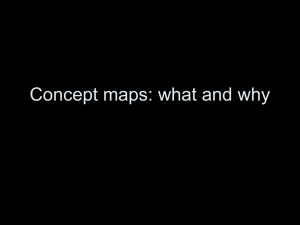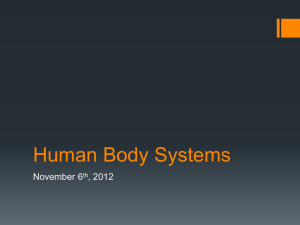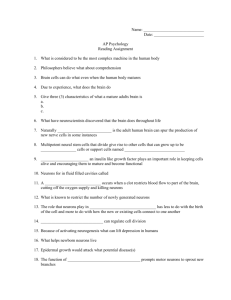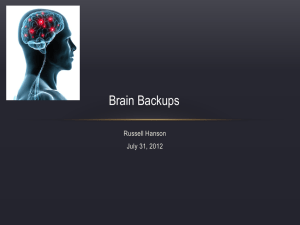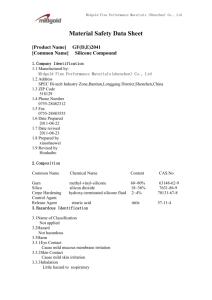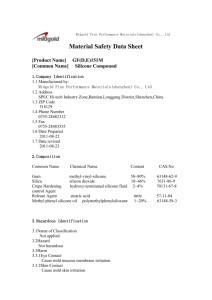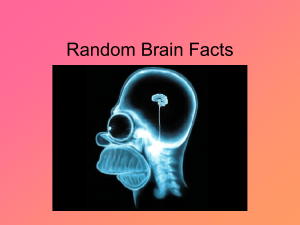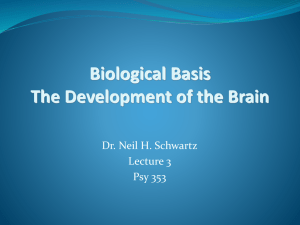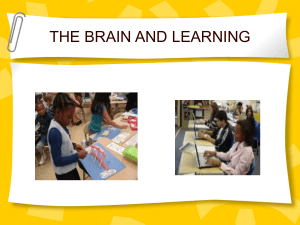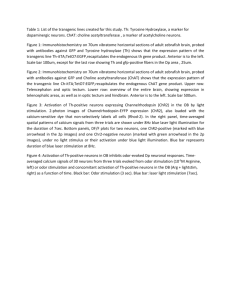Number 1
advertisement
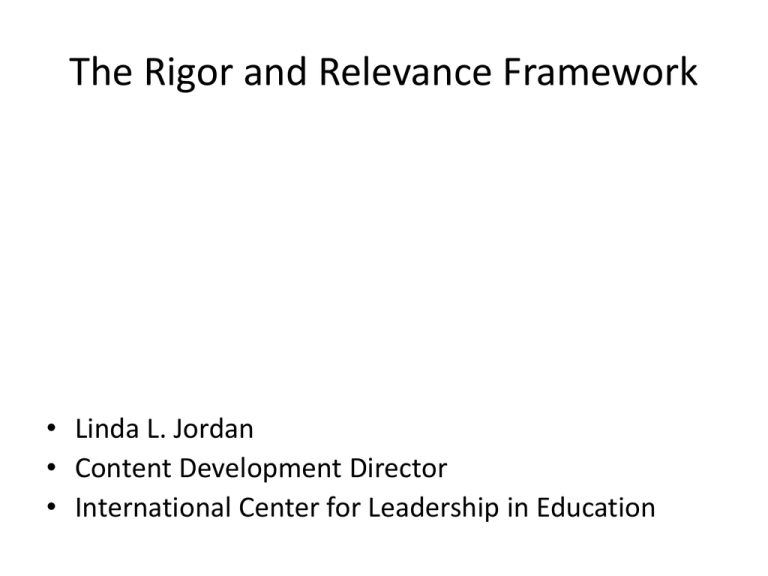
The Rigor and Relevance Framework • Linda L. Jordan • Content Development Director • International Center for Leadership in Education Agenda Welcome The 4 Quadrants The Rigor and Relevance Framework Closing Moving Beyond the Basics Holland Michigan 3 My Credentials Professor Director of Content Development International Center for Leadership in Education 4 Hope College Doctoral Candidate Linda’s Family Why do we need to get to know the teacher? (Linda) • Emotion is the gatekeeper to learning • Relationship is a key element in every classroom • Builds trust • Find common threads of interest • Fun All We Have In Common • With the people sitting near you form a group of 3-5 • Create a list of at least three things you have in common. • Be ready to share some items from you list with the group. 7 Goals for the Session My Goals: ~Give you some applications of brain information to your career, your students’ lives, and the RR Framework. ~Build an understanding of the RR Framework for application to your life. Your Goals: What are the problems the world faces today? 9 Who Are the Students We Teach? • Digital Natives • Live in Global World • Parents & Students have new choices –On-line learning Change Common Core State Standards • • • • Fewer Higher Deeper The students will be expected to THINK and apply their knowledge • Computerized • Next Generation of Testing, 2014 i-Brain LEVELS OF USE LEVELS NON-USE ORIENTATION PREPARATION When learning a new strategy, process, or skill INDICES No action taken—user doesn’t know about it. User has just acquired or is acquiring information and is exploring it. Preparing to use it, finding out more, gathering the necessary materials, and getting organized. MECHANICAL USE Use requires focus day by day on steps involved. ROUTINE USE REFINEMENT INTEGRATION/ COLLABORATION RENEWAL Use has become routine and comfortable for the user. If changes are made, they are convenient. User makes changes to improve the process and outcome for students. Deliberate effort is made to collaborate with others to achieve broader changes. All refinements possible have been made, user now seeks more effective alternatives, new approaches, and abandons the old in favor of the new. Return to Non-Use and the cycle begins again “The future is not some place we are going to, but one we are creating. The paths are not found, but made, and the activity of making them changes both the maker and the destination.” --John Schaar Unless we unlearn some of our traditional practices, we will never get beyond an improvement mindset. We are getting better at things that do not matter as much anymore. Making a better th “20 Century School” is not the answer. Shenzhen, China: 1975 Shenzhen, China: Today 1980 2008 - Fishing Village Port of Shenzhen 1 / Second 24 / 7 Source: Atlantic Monthly Projection Keyboard Google Glasses Impact of Technology • Wolfram Alpha • Flipping the Classroom –Khan Academy Technology by Generations Today’s Students Want to Make Games not just play them….. Impact of Technology Technologies to Watch The Horizon Report 2012 Near Term (1-2 Years) Mobil Apps & Tablet computing Mid Term (2-3 years) Augmented Reality and Game Based Learning Mid Term (4-5 years) Gesture-based computing Amazon: For every traditional 100 books sold, 105 electronic books were sold. (May 19, 2011) Impact of Technology Technologies to Watch The Horizon Report 2012 “Education paradigms are shifting to include online learning, hybrid learning and collaborative models. There is a new emphasis in the classroom on more challenging-based and active learning.” Current System Something Different The Horse The Automobile Henry Ford quote… “If I had asked the public what they wanted, they would have said a faster horse.” Some suggesting bold moves…. Conrad Wolfram… Start teaching math and stop teaching calculating. Sal Khan- The Khan Academy Daggett System for Effective Instruction 1950’s School Building 1970’s School Building 2000’s School Building 2010’s School Building Why Change? • • • • • • Career and College Ready 21st Century Skills Technology Foundational Knowledge Pursuit of Excellence Maximize Potential What is College Ready? Knowledge, skills, and attributes a student should possess to be ready to succeed in entry-level college courses. What is Career Ready? Core academic skills and the ability to apply those skills to concrete situations in order to function in the workplace and in routine daily activities Employability skills (such as critical thinking and responsibility) that are essential in any career area Technical, job-specific skills related to a specific career pathway What are the st 21 Century Skills? Ways of thinking Creativity, critical thinking, problemsolving, decision-making and learning Ways of working Communication and collaboration Tools for working. Information and communications technology (ICT) and information literacy Skills for living in the world Citizenship, life and career, and personal and social responsibility Putting Concepts Into Practice What are the st 21 Century Skills? Collaborative problem-solving Working together to solve a common challenge, which involves the contribution and exchange of ideas, knowledge or resources to achieve the goal. ICT literacy — learning in digital networks Learning through digital means, such as social networking, ICT (Information and Communication Technologies), technological awareness and simulation. Each of these elements enables individuals to function in social networks and contribute to the development of social and intellectual capital. Education is changing…. are YOU? How do we get our students ready? Teachers are working hard, however…. Schools are Improving Schools are Improving Daggett System for Effective Instruction Teaching Student Achievement Teaching Brain Geography… The Brain SO WHY DOES INFORMATION FROM THE NEUROSCIENCES MATTER? IT HAS BEEN A CURIOSITY FOR MUCH OF HUMAN HISTORY! Learning is the brain’s primary function. Yesterday’s thinking….. Phrenology – 1840s and 50s an early practice at the end of the 19th century that claimed to be able to identify mental capacity and character by feeling the bumps of the skull Today’s Science… SPECT Scans PET Scans MRI and fMRI It is possible to see the mind at work! BRAIN BASICS “LEARNING IS THE BRAIN’S PRIMARY FUNCTION…” Frank Smith, Insult to Intelligence Lobes of the Brain Communication of Neurons Photograph of NEURONS Environmental Factors Affecting the Growing Brain Emotion laden messages Greater stress, threat, and violence Less physical activity, more TV Rapidly changing inputMTV Variation in family pattern Diet, nutrition, and drugs —David Sousa, 1998 Mirror Neurons in the Brain A new class of brain cells -- mirror neurons -- is active both when people perform an action and when they watch it being performed.
